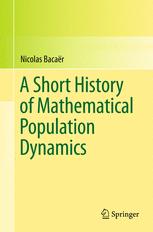

Most ebook files are in PDF format, so you can easily read them using various software such as Foxit Reader or directly on the Google Chrome browser.
Some ebook files are released by publishers in other formats such as .awz, .mobi, .epub, .fb2, etc. You may need to install specific software to read these formats on mobile/PC, such as Calibre.
Please read the tutorial at this link: https://ebookbell.com/faq
We offer FREE conversion to the popular formats you request; however, this may take some time. Therefore, right after payment, please email us, and we will try to provide the service as quickly as possible.
For some exceptional file formats or broken links (if any), please refrain from opening any disputes. Instead, email us first, and we will try to assist within a maximum of 6 hours.
EbookBell Team

4.8
74 reviews<p>As Eugene Wigner stressed, mathematics has proven unreasonably effective in the physical sciences and their technological applications. The role of mathematics in the biological, medical and social sciences has been much more modest but has recently grown thanks to the simulation capacity offered by modern computers.</p>
<p>This book traces the history of population dynamics---a theoretical subject closely connected to genetics, ecology, epidemiology and demography---where mathematics has brought significant insights. It presents an overview of the genesis of several important themes: exponential growth, from Euler and Malthus to the Chinese one-child policy; the development of stochastic models, from Mendel's laws and the question of extinction of family names to percolation theory for the spread of epidemics, and chaotic populations, where determinism and randomness intertwine.</p>
<p>The reader of this book will see, from a different perspective, the problems that scientists face when governments ask for reliable predictions to help control epidemics (AIDS, SARS, swine flu), manage renewable resources (fishing quotas, spread of genetically modified organisms) or anticipate demographic evolutions such as aging.</p>